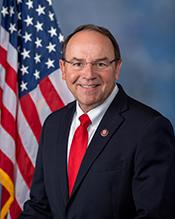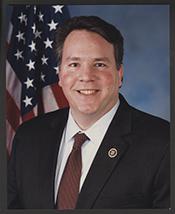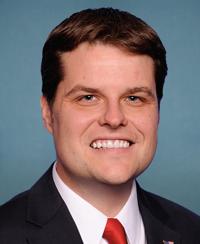0
0
0
To prohibit any entity that receives Federal funds from the COVID relief packages from mandating employees receive a COVID-19 vaccine, and for other purposes.
12/15/2023, 3:53 PM
Summary of Bill HR 117
Bill 118 hr 117, also known as the "COVID-19 Vaccine Mandate Prohibition Act," aims to prevent any organization or entity that receives federal funds from the COVID relief packages from requiring their employees to receive a COVID-19 vaccine. The bill also includes provisions for other purposes related to COVID-19 vaccine mandates.
The bill is designed to protect the rights of employees who may have concerns or objections to receiving the COVID-19 vaccine. By prohibiting entities that receive federal funds from mandating the vaccine, the bill seeks to ensure that individuals have the freedom to make their own decisions regarding their health and medical treatment.
Supporters of the bill argue that it is important to uphold individual rights and autonomy, particularly in the context of a rapidly developed vaccine for a novel virus. They believe that mandating the vaccine could infringe on personal freedoms and create unnecessary conflicts in the workplace. Opponents of the bill, however, may argue that requiring the COVID-19 vaccine for employees is necessary to protect public health and prevent the spread of the virus. They may also argue that federal funds should come with certain conditions to ensure the safety and well-being of employees and the general population. Overall, Bill 118 hr 117 raises important questions about the balance between individual rights and public health concerns in the context of the COVID-19 pandemic. It will be important for lawmakers to carefully consider the implications of this bill and weigh the potential benefits and drawbacks of prohibiting vaccine mandates for entities that receive federal funds.
The bill is designed to protect the rights of employees who may have concerns or objections to receiving the COVID-19 vaccine. By prohibiting entities that receive federal funds from mandating the vaccine, the bill seeks to ensure that individuals have the freedom to make their own decisions regarding their health and medical treatment.
Supporters of the bill argue that it is important to uphold individual rights and autonomy, particularly in the context of a rapidly developed vaccine for a novel virus. They believe that mandating the vaccine could infringe on personal freedoms and create unnecessary conflicts in the workplace. Opponents of the bill, however, may argue that requiring the COVID-19 vaccine for employees is necessary to protect public health and prevent the spread of the virus. They may also argue that federal funds should come with certain conditions to ensure the safety and well-being of employees and the general population. Overall, Bill 118 hr 117 raises important questions about the balance between individual rights and public health concerns in the context of the COVID-19 pandemic. It will be important for lawmakers to carefully consider the implications of this bill and weigh the potential benefits and drawbacks of prohibiting vaccine mandates for entities that receive federal funds.
Congressional Summary of HR 117
This bill prohibits any entity that receives specified COVID-19 relief funds from mandating COVID-19 vaccines for its employees. An entity that violates this prohibition must return the funding it received.
Read the Full Bill
Current Status of Bill HR 117
Bill HR 117 is currently in the status of Bill Introduced since January 9, 2023. Bill HR 117 was introduced during Congress 118 and was introduced to the House on January 9, 2023. Bill HR 117's most recent activity was Referred to the Committee on Oversight and Accountability, and in addition to the Committee on Energy and Commerce, for a period to be subsequently determined by the Speaker, in each case for consideration of such provisions as fall within the jurisdiction of the committee concerned. as of January 9, 2023
Bipartisan Support of Bill HR 117
Total Number of Sponsors
1Democrat Sponsors
0Republican Sponsors
1Unaffiliated Sponsors
0Total Number of Cosponsors
8Democrat Cosponsors
0Republican Cosponsors
8Unaffiliated Cosponsors
0Policy Area and Potential Impact of Bill HR 117
Primary Policy Focus
HealthAlternate Title(s) of Bill HR 117
To prohibit any entity that receives Federal funds from the COVID relief packages from mandating employees receive a COVID-19 vaccine, and for other purposes.
To prohibit any entity that receives Federal funds from the COVID relief packages from mandating employees receive a COVID-19 vaccine, and for other purposes.
Comments
Sponsors and Cosponsors of HR 117
Latest Bills
Providing for congressional disapproval under chapter 8 of title 5, United States Code, of the rule submitted by the Bureau of Land Management relating to "Central Yukon Record of Decision and Approved Resource Management Plan".
Bill HJRES 106December 12, 2025
Providing for congressional disapproval under chapter 8 of title 5, United States Code, of the rule submitted by the Bureau of Land Management relating to "North Dakota Field Office Record of Decision and Approved Resource Management Plan".
Bill HJRES 105December 12, 2025
Holocaust Expropriated Art Recovery Act of 2025
Bill S 1884December 12, 2025
Providing for congressional disapproval under chapter 8 of title 5, United States Code, of the rule submitted by the Bureau of Land Management relating to "Miles City Field Office Record of Decision and Approved Resource Management Plan Amendment".
Bill HJRES 104December 12, 2025
Enduring Justice for Victims of Trafficking Act
Bill S 2584December 12, 2025
National Defense Authorization Act for Fiscal Year 2026
Bill S 1071December 12, 2025
Technical Corrections to the Northwestern New Mexico Rural Water Projects Act, Taos Pueblo Indian Water Rights Settlement Act, and Aamodt Litigation Settlement Act
Bill S 640December 12, 2025
Department of Defense Appropriations Act, 2026
Bill HR 4016December 12, 2025
End the Fed’s Big Bank Bailout Act
Bill S 2113December 12, 2025
Federal Reserve Transparency Act of 2025
Bill S 2327December 12, 2025




